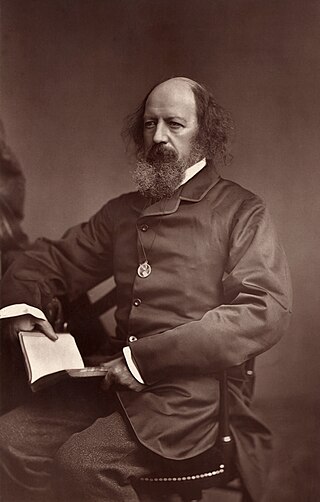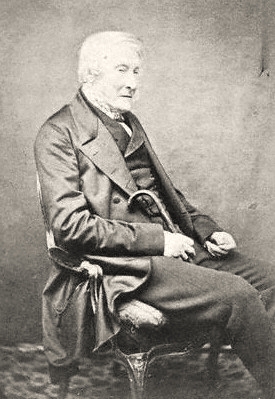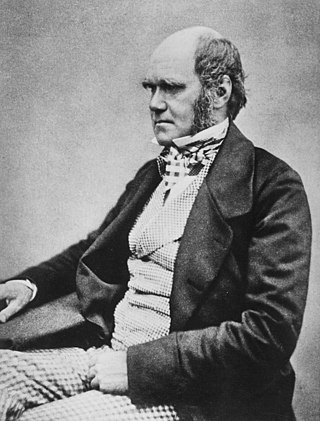Related Research Articles

Darwinism is a theory of biological evolution developed by the English naturalist Charles Darwin (1809–1882) and others, stating that all species of organisms arise and develop through the natural selection of small, inherited variations that increase the individual's ability to compete, survive, and reproduce. Also called Darwinian theory, it originally included the broad concepts of transmutation of species or of evolution which gained general scientific acceptance after Darwin published On the Origin of Species in 1859, including concepts which predated Darwin's theories. English biologist Thomas Henry Huxley coined the term Darwinism in April 1860.

On the Origin of Species is a work of scientific literature by Charles Darwin that is considered to be the foundation of evolutionary biology; it was published on 24 November 1859. Darwin's book introduced the scientific theory that populations evolve over the course of generations through a process of natural selection. The book presented a body of evidence that the diversity of life arose by common descent through a branching pattern of evolution. Darwin included evidence that he had collected on the Beagle expedition in the 1830s and his subsequent findings from research, correspondence, and experimentation.

Alfred Tennyson, 1st Baron Tennyson was an English poet. He was the Poet Laureate during much of Queen Victoria's reign. In 1829, Tennyson was awarded the Chancellor's Gold Medal at Cambridge for one of his first pieces, "Timbuktu". He published his first solo collection of poems, Poems, Chiefly Lyrical, in 1830. "Claribel" and "Mariana", which remain some of Tennyson's most celebrated poems, were included in this volume. Although described by some critics as overly sentimental, his verse soon proved popular and brought Tennyson to the attention of well-known writers of the day, including Samuel Taylor Coleridge. Tennyson's early poetry, with its medievalism and powerful visual imagery, was a major influence on the Pre-Raphaelite Brotherhood.

Samuel Wilberforce, FRS was an English bishop in the Church of England, and the third son of William Wilberforce. Known as "Soapy Sam", Wilberforce was one of the greatest public speakers of his day. He is now best remembered for his opposition to Charles Darwin's theory of evolution at a debate in 1860.

Theistic evolution is a view that God acts and creates through laws of nature. It posits that the concept of God is compatible with the findings of modern science, including evolution. Theistic evolution is not in itself a scientific theory, but includes a range of views about how science relates to religious beliefs and the extent to which God intervenes. It rejects the strict creationist doctrines of special creation, but can include beliefs such as creation of the human soul. Modern theistic evolution accepts the general scientific consensus on the age of the Earth, the age of the universe, the Big Bang, the origin of the Solar System, the origin of life, and evolution.

The poem "In Memoriam A.H.H." (1850) by Alfred, Lord Tennyson, is an elegy for his Cambridge friend Arthur Henry Hallam, who died of cerebral haemorrhage at the age of twenty-two years, in Vienna in 1833. As a sustained exercise in tetrametric lyrical verse, Tennyson's poetical reflections extend beyond the meaning of the death of Hallam, thus, "In Memoriam" also explores the random cruelty of Nature seen from the conflicting perspectives of materialist science and declining Christian faith in the Victorian Era (1837–1901), the poem thus is an elegy, a requiem, and a dirge for a friend, a time, and a place.
The Transmutation of species and transformism are 18th and early 19th-century ideas about the change of one species into another that preceded Charles Darwin's theory of evolution through natural selection. The French Transformisme was a term used by Jean Baptiste Lamarck in 1809 for his theory, and other 18th and 19th century proponents of pre-Darwinian evolutionary ideas included Denis Diderot, Étienne Geoffroy Saint-Hilaire, Erasmus Darwin, Robert Grant, and Robert Chambers, the anonymous author of the book Vestiges of the Natural History of Creation. Such ideas were associated with 18th century ideas of Deism and human progress. Opposition in the scientific community to these early theories of evolution, led by influential scientists like the anatomists Georges Cuvier and Richard Owen, and the geologist Charles Lyell, was intense. The debate over them was an important stage in the history of evolutionary thought and influenced the subsequent reaction to Darwin's theory.
Benjamin Dann Walsh was an English-born American entomologist who served as the first official state entomologist in Illinois. He was a leading influence during a time of significant transition in American entomology. Walsh championed the application of scientific methods to control agricultural pests. He was a proponent of biological control as an effective means to manage insects. He was also one of the first American scientists to support Charles Darwin's theory of evolution and was instrumental in securing its broad acceptance in the entomological community.

Godfrey Higgins was an English magistrate and landowner, a prominent advocate for social reform, historian, and antiquarian. He wrote concerning ancient myths. His book Anacalypsis, was published posthumously, in which he asserts a commonality among various religious myths, which he traces back to the supposed lost religion of Atlantis. He has been termed a "political radical, reforming county magistrate and idiosyncratic historian of religions".

Algernon George Percy, 6th Duke of Northumberland,, styled Lord Lovaine between 1830 and 1865 and Earl Percy between 1865 and 1867, was a British Conservative politician. He held office under the Earl of Derby as Paymaster General and Vice-President of the Board of Trade in 1859 and under Benjamin Disraeli as Lord Privy Seal between 1878 and 1880.

John Lee LL.D, FRS, born John Fiott, was an English philanthropist, astronomer, mathematician, antiquarian, barrister, and numismatist.

George Percy, 5th Duke of Northumberland PC, styled Lord Lovaine between 1790 and 1830 and known as the Earl of Beverley between 1830 and 1865, was a British Tory politician. He served as Captain of the Yeomen of the Guard under Sir Robert Peel between 1842 and 1846. He succeeded to his peerage on 12 February 1865, after the death of his childless cousin Algernon Percy.

Robert Etheridge FRS FRSE FGS was an English geologist and palaeontologist.
George Hawkins Pember (1837–1910), known as G. H. Pember, was an English theologian and author who was affiliated with the Plymouth Brethren.

Anacalypsis is a lengthy two-volume treatise written by religious historian Godfrey Higgins, and published after his death in 1836. The book was published in two quarto volumes numbering 1,436 pages, and contains meticulous references to hundreds of references. Initially printed as a limited edition of 200 copies, it was partially reprinted in 1878, and completely reprinted in a limited edition of 350 copies in 1927. In 1965, University Books, Inc. published 500 sets for the United States and 500 sets for the British Commonwealth with Publisher's Note and a Postface.

Charles Robert Darwin was an English naturalist, geologist and biologist, widely known for his contributions to evolutionary biology. His proposition that all species of life have descended from a common ancestor is now generally accepted and considered a fundamental concept in science. In a joint publication with Alfred Russel Wallace, he introduced his scientific theory that this branching pattern of evolution resulted from a process he called natural selection, in which the struggle for existence has a similar effect to the artificial selection involved in selective breeding. Darwin has been described as one of the most influential figures in human history and was honoured by burial in Westminster Abbey.

The 1860 Oxford evolution debate took place at the Oxford University Museum in Oxford, England, on 30 June 1860, seven months after the publication of Charles Darwin's On the Origin of Species. Several prominent British scientists and philosophers participated, including Thomas Henry Huxley, Bishop Samuel Wilberforce, Benjamin Brodie, Joseph Dalton Hooker and Robert FitzRoy.

After the American Revolutionary War, U.S. printers were freed of British copyright restrictions and freely reprinted British works. Upper Canadian printers remained bound by British copyright. American presses quickly took the lead in producing cheap editions and eventually the printing of original work.
Robert J. Richards is an author and the Morris Fishbein Distinguished Service Professor of the History of Science and Medicine at the University of Chicago. He has written or edited seven books about the history of science as well as dozens of articles.
Charles Robert Bree was a British physician, ornithologist and zoologist, best known for his opposition to Darwin's theory of evolution.
References
- 1 2 Cambridge University Library, Department of Manuscripts and University Archives, Robert Mackenzie Beverley: Correspondence regarding his Attack on Cambridge University, MS Add.4249
- ↑ "My Brethren - Memorabilia - R. M. Beverley".
- ↑ Beverley, Robert Mackenzie. A letter to lord Henley, on the deficiencies of his plan of Church reform. Sold by Simpkin and Marshall and others 1833 Available at https://archive.org/details/alettertolordhe00bevegoog
- ↑ Beverley, Robert Mackenzie. The Posthumous Letters of Rev. Rabshakeh Gathercoal. Publisher: G. Westley and A. H. Davis 1835. Available under the pseudonym at https://archive.org/details/posthumouslette00rabsgoog
- ↑ Beverley, R. M.; Philip, John, supposed author; Glenelg, Charles Grant. The wrongs of the Caffre nation; a narrative 1837 Available at https://archive.org/details/wrongscaffrenat00glengoog
- ↑ Beverley, Robert Mackenzie. The Darwinian Theory of the Transmutation of Species. Publisher: J. Nisbet 1867 may be downloaded from: https://archive.org/details/darwiniantheory00bevegoog
- ↑ Beverley, Robert Mackenzie. The Redan, a poem. 1856 may be downloaded from: https://archive.org/details/redanapoem00bevegoog
- ↑ Robert Mackenzie Beverley (1827). Jubal, a dramatic poem . Retrieved 30 June 2013.
- ↑ Godfrey Higgins (1 January 2007). Anacalypsis (Volume 1 of 2, Part 2 of 2). Digireads.com Publishing. pp. 496–. ISBN 978-1-4209-2992-8 . Retrieved 30 June 2013.
- ↑ A Letter to R.M. Beverley, Esq., from an Undergraduate of the University of Cambridge. T. Stevenson; and Longman, Rees, & Company, London. 1833. Retrieved 30 June 2013.
- ↑ Francis Russel Hall; Robert Mackenzie Beverley (1834). A letter to R.M. Beverley ... containing strictures on his Letter to ... the duke of Gloucester ... on the present corrupt state of the University [of Cambridge]. pp. 40–. Retrieved 30 June 2013.
- ↑ Anonymous. (1868). Review: The Darwinian Theory of the Transmutation of Species. The Athenaeum, Part 4. p. 217.
- ↑ Beverley, Robert Mackenzie. (1867). The Darwinian Theory of the Transmutation of Species. London: James Nisbet. p. 46.